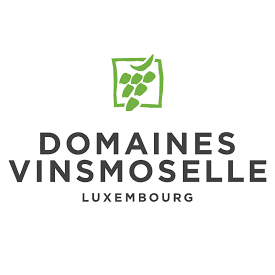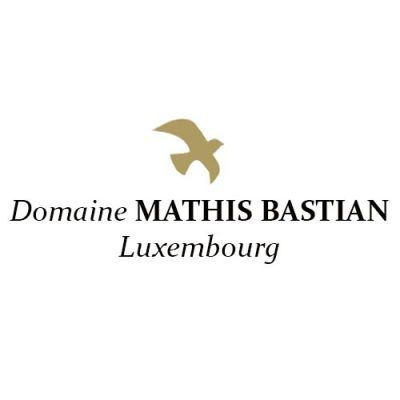
Luxembourg wine: regions, wineries and best places to taste
Nothing like a glass of wine to accompany a good dish, but... what if you are in Luxembourg and you want a local wine, which one should you choose? Don't despair, in this guide we will venture into the world of Luxembourg wine, we will explore the wine tradition of the country, the main grape varieties, brands, festivals and much more.
Remember that a glass or two of wine with a meal or on a night out with friends is great, but don't overdo it. It's not about drinking a whole bottle by yourself, too much alcohol can lead to serious health problems, traffic accidents, fines and many other problems.
History of winemaking in Luxembourg
Grape growing and winemaking in Luxembourg dates back to immemorial times, so let's take a quick look at the evolution of this practice from then until today.
Luxembourg's wine history is closely linked to the Moselle River. This river forms the border with Germany for 36 kilometers and the Moselle wine region is located in its valley. It is one of the northernmost regions in which vines have been cultivated since ancient times, as the Celts, Gauls and Romans were already growing vines in this area.
In the Middle Ages, the foundation of numerous monasteries led to a boom in viticulture throughout the country. However, after the harsh winter of 1709, vines were destroyed throughout the country, with the exception of the Moselle Valley.
Until the beginning of the 20th century, most of Luxembourg's wine production consisted of indigenous grapes such as Elbling. Luxembourg winegrowers were content to mass-produce Elbling and ship most of it to the German wine-growing region of Mosel-Saar-Ruwer as bulk wine for blending.
After World War I and the Treaty of Versailles, Luxembourg left the German customs union, the Zollverein, which put the wine sector in a delicate situation. In 1922, Luxembourg entered into a customs union with Belgium (UEBL) and as a consequence new French grape varieties were introduced and the Luxembourg government made efforts to strengthen the identity of its own wines. This led to the foundation of a viticultural institute in Remich in 1925. At this time Pinot Noir, Auxerrois and Riesling were the stars.
In 1935 the Marque National de Vins Luxembourgeois, a regulatory body for Luxembourg wines, was created, this set the basic rules to be followed by winemakers regarding permitted grapes, blending requirements, vineyard practices and labeling laws.
Since the 1980s, the introduction of the appellation “Appellation d'origine protégée (AOP) - Moselle Luxembourgeoise”, the creation of the appellation “Crémant de Luxembourg”, followed by the special mentions “Vendanges Tardives”, “Vin de Glace” and “Vin de Paille”, as well as “Vins barriques”, have given the Luxembourg vineyards their current reputation, now supported by the Commission de Promotion des Vins et Crémants de Luxembourg.
More recently vineyards have been established in other areas of Luxembourg such as in Vianden where the first vines were planted in 2010 or in Rosport where there has been a renaissance of vineyards.
Current state of Luxembourg winemaking
Now that we have reviewed the history let's take a look at the current state of the Luxembourg wine industry.
Luxembourg has a relatively small but valuable wine-growing area, covering a total surface of 1246 ha, of which 90% is dedicated to the cultivation of white wine vines and 10% of red wine vines. In total, there are 340 winegrowing holdings and production amounts to 125,000 hl, of which 25% is Crémant de Luxembourg.
Luxembourg has a strong trend towards organic and sustainable wine production. Winegrowers have adopted more environmentally friendly practices, such as the reduced use of pesticides, the promotion of biodiversity in the vineyards and the sustainable management of water resources. Currently, organic viticulture represents 10% of winegrowers, although the process of transition to this mode of production is slow, organic viticulture is gradually gaining importance and this figure is increasing all the time. The demand for organic wines has grown both within the country and in international markets, so many winegrowers have opted to obtain organic agriculture certifications.
There are a large number of small winegrowers in the country, some of whom work independently while others are associated with large cooperatives. These wine cooperatives play an important role in the local market. For example, Les Domaines de Vinsmoselle is the largest wine producers' cooperative in the country and represents a good part of the national wine production. These cooperatives enable small producers to compete in the market, access better resources and market their products on a large scale.However, there is also a significant presence of small producers who choose to work independently and produce high-quality artisanal wines.
Historically, Luxembourg has been a primarily domestic market for its wines. However, in recent years, exports have gained momentum, and Luxembourg wines are finding their way into international markets.
In 2023, the country exported 10.05 million liters for a total value of 28.62 million dollars. Most of the Luxembourg wines exported (44.3% of the volume) were effervescent wines. Bottled still wines accounted for 23% of the volume of exports and wines bulk still wines accounted for 22.6%.
In 2023, the country's main customers were Belgium, Canada, Germany and France. Belgium alone accounted for 43.96% of the value and 55.42% of the volume of wine exports. Canada was the country's second largest customer both in value, with 14.92% of market share, and in volume with 14.23% of market share.
Luxembourg’s wine regions and varieties
As we saw when talking about the wine history of Luxembourg, the main wine-growing region of the country is the Moselle valley, so we will now take a look at the main characteristics of this region and the vines grown there.
Moselle Valley
The Moselle stretches from Schengen to Wasserbillig over 42 km modeling an undulating landscape, cut by stretches of limestone rock, ideal cradle for viticulture. The vineyards are located on the banks of the river and extend over a width of 300 to 400 meters. More than half of which, especially in the canton of Remich, is made up of deep soils combining gypsum and Keuperian marl, producing round and honeyed wines. In the canton of Grevenmacher, the eroded soil, crossed by impermeable layers, is composed of Conchylian limestone, ideal for wines of character and race.The best vineyards are located at an altitude of between 150 and 200 meters and benefit from temperate climatic conditions, with both maritime and continental influences.
Luxembourg is known for its white wines, due to the region’s cool climate.
Grape varieties of Luxembourg
Elbling
Rivaner
Auxerrois
Pinot Blanc
Pinot Gris
Riesling
Chardonnay
Gewürztraminer
Pinot noir
Saint Laurent
| Grape Variety | Wine Type | Tasting notes |
| Elbling | White | Citrus, currant, green apple, pomegranate |
| Rivaner (Müller-Thurgau) | White | Apple, apricot, peach, spices |
| Auxerrois | White | Melon, Mirabelle, floral notes, citrus, exotic fruits, quince, honey |
| Pinot Blanc | White | Citrus, white flowers, pineapple, pear, apple, almond |
| Pinot Gris | White | Citrus, pear, dried fruits, nuts, toast |
| Riesling | White | Citrus, apple, apricot, quince, exotic fruits, minerality, spices |
| Gewürztraminer | White | Rose, lychee, peach, apricot, orange, grapefruit, honey |
| Chardonnay | White | Vanilla notes and hints of toast and roast |
| Pinot Noir | Red | Red fruit aromas, vanilla and toast |
| Saint Laurent | Red | Intensely aromatic and fruity, with notes of wild berries, sour cherries, plums, and mature hints of dark chocolate |
Top Luxembourg wine brands and producers
Let's now take a look at some of the most representative producers and domains in the country.


Wine festivals and tours in Luxembourg
Grape varieties, regions, stories, wine brands, all this is fine, but what about the celebrations? With so much wine there must be many celebrations, right? You are right, there are several, here are some of them:
This event celebrates the famous Luxembourg Crémant and other wines produced in the Moselle region. There you can discover the wines and crémants of the Moselle, learn more about the wine region by talking to the winemakers and even buy some bottles.
- Address: Glacis, Luxembourg-Ville
- Dates: from 29/11/2024 (15:00) to 01/12/2024 (20:00)
In spring, during the grape harvest, different Luxembourgish villages celebrate this festival where wines are the protagonists. There are parades, concerts and tastings of local wines.
- Address: on the premises of local wineries or outdoors under large marquees
- Dates:spring
These festivals take place in September and October and are considered thanksgiving celebrations for the harvest. The queen of wine is chosen and, to the sound of music, she is paraded around the town dressed in festive attire.
- Address: In many winegrowing towns such as Machtum, Ehnen, Ahn, Wormeldingen, Stadtbredimus or Schwebsange, the list of villages celebrating the new harvest is extensive.
- Dates: September and October
This is an annual fair held at the Luxexpo the Box event center where a large number of winemakers present their wines. It is an event aimed at both professionals and amateurs, where it is possible to taste some wines, buy some bottles or even do business.
- Dates: May 13 to 17
Read article
Although Luxembourg is small and more known for its financial industry than for its wines, it has a rich and diverse winemaking tradition. If you are passing through the region or if you live in the Grand Duchy but have not yet tasted its wines, it is time to get to work and take advantage of the wine delights that the Moselle region has to offer.
Frequently Asked Questions (FAQ)
What is Crémant de Luxembourg, and how is it different from other sparkling wines?
Where is the wine region of Luxembourg located?
What is the climate like in Luxembourg’s wine-growing regions?
Are there red wines produced in Luxembourg?
Source: luxembourg.public.lu, luxembourg.public.lu, luxembourg.public.lu, luxembourg.public.lu, en.wikipedia.org, fr.wikipedia.org, de.wikipedia.org, www.wineenthusiast.com, www.luxtimes.lu, www.vinsmoselle.lu, www.bourrasse.com, vins-cremants.lu, aop.public.lu, aop.public.lu, aop.public.lu, export.agence-adocc.com, slideplayer.fr, vins-cremants.lu, www.mathisbastian.lu, www.alice-hartmann.lu, viamosel.com, www.expovin.lu
We took photos from these sources: Domaines de Vinsmoselle, La Cave des Sommeliers, Domaine Alice Hartmann